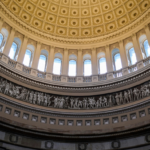2023 California Supreme Court Decisions Every Lawyer Should Know

2023 California Supreme Court Decisions Every Lawyer Should Know
Estimated reading time: 10 minutes
In 2023, the California Supreme Court issued several pivotal decisions impacting the state’s legal landscape. From examining legislative changes affecting gang-related murder charges to scrutinizing employee rights in the gig economy, the court’s rulings have far-reaching implications. In this post, we’ll cover a few highlights.
Pico Neighborhood Association v. City of Santa Monica, 15 Cal. 5th 292 (2023)
Summary: The Court addressed a significant issue under the California Voting Rights Act (CVRA), focusing on the legality of at-large election systems that potentially dilute the voting power of protected classes. The case, decided on August 24, 2023, marked a critical point in the interpretation of the CVRA, particularly in how at-large election systems are assessed for their impact on minority voting strength.
The core of the dispute centered on Santa Monica’s at-large system for electing city council members, which was challenged for diluting the Latino vote and thus impairing their ability to elect candidates of their choice or to influence election outcomes. The Pico Neighborhood Association highlighted that despite the Latino community’s support, their preferred candidates were consistently losing, underscoring a broader issue of electoral disenfranchisement. This situation was exacerbated by a backdrop of discrimination against Latinos, income disparities, and a lack of responsiveness to Latino community interests, which collectively suggested a racially polarized voting environment.
The California Supreme Court’s decision was pivotal in clarifying that for a CVRA violation claim, there’s no requirement for a protected class to constitute a majority or near-majority in a hypothetical district. This ruling deviated from the Court of Appeal’s earlier stance, which had suggested the necessity of geographic compactness or concentration for proving a CVRA violation. The Supreme Court underscored that different electoral systems could lead to varied outcomes, particularly disadvantaging minority groups in at-large or multimember district schemes.
Implications: By remanding the case for further consideration under a new standard, the Supreme Court effectively broadened the CVRA’s application, emphasizing that the evaluation of at-large voting systems must consider whether alternative voting methods (like district-based elections, cumulative voting, limited voting, and ranked choice voting) could better enable minority voters to elect their preferred candidates or influence elections.
This decision has potentially significant implications for electoral law in California, offering a more expansive interpretation of the CVRA that prioritizes the electoral potential of protected classes over strict geographic or demographic criteria. It underscores a legislative intent to ensure more inclusive electoral processes and enhance the political representation of minority groups.
Raines v. U.S. Healthworks Medical Group, 15 Cal. 5th 268 (2023)
Summary: Plaintiffs Kristina Raines and Darrick Figg experienced conditional job offers that were dependent on passing medical screenings conducted by U.S. Healthworks Medical Group. Raines’s offer was revoked after she declined to answer certain questions she found overly intrusive, which she argued were irrelevant to her job role and violated her rights under the Fair Employment and Housing Act (FEHA). The initial stance was that FEHA only imposed direct liability for discrimination on employers, not on agents or third-party service providers. However, this case’s progression through the courts challenged that interpretation.
The Ninth Circuit found the issue significant enough to request clarification from the California Supreme Court, which ultimately expanded the definition of “employer” under FEHA to include business entities acting as an agent of an employer, provided they engage in FEHA-regulated activities and have at least five employees. This decision underscores the importance of ensuring that all entities involved in the employment process, including third-party agents, comply with FEHA regulations to prevent discrimination.
Implications: Raines marked a significant legal development in California regarding the liability for employment discrimination under FEHA. Decided on August 21, 2023, the California Supreme Court ruled that not only employers but also their business entity agents can be held directly liable for discrimination against workers in certain situations. This expands the scope of potential liability under FEHA beyond the direct employer to include third-party service providers that perform employment-related tasks, such as pre-employment screenings.
This ruling is pivotal as it sets a precedent for holding third-party providers accountable for discriminatory practices, potentially affecting how businesses outsource and contract employment-related services. It signals a broader interpretation of FEHA, aiming to protect workers from discrimination throughout the employment process, not just from direct employers.
Leon v. County of Riverside, 14 Cal. 5th 910 (2023)
Summary: In Leon, decided on June 22, 2023, the California Supreme Court clarified the scope of immunity under the Government Claims Act, particularly section 821.6, which has been subject to broad interpretation by various Courts of Appeal over the years. The core issue was whether public employees, specifically law enforcement officers, are immune from liability for actions taken during the course of investigating crimes that do not lead to charges.
The ruling stemmed from a broader interpretation of section 821.6, which states that a public employee is not liable for injury caused by instituting or prosecuting any judicial or administrative proceeding within the scope of employment, even if actions are taken maliciously and without probable cause. Previous appellate decisions extended this immunity to cover almost all actions taken by police in the course of investigations, regardless of whether those actions led to a prosecution or not.
Implications: Leon represents a significant departure from such interpretations, emphasizing that the immunity provided under section 821.6 should not be applied to actions that do not directly involve the initiation or prosecution of judicial or administrative proceedings. This distinction is crucial as it acknowledges the difference between the investigative process and the prosecutorial process, suggesting that actions taken during investigations, especially those that do not lead to charges, do not automatically warrant immunity from liability for public employees.
The Supreme Court’s decision underscores the importance of distinguishing between different phases of law enforcement activity and holds that public employees can be liable for certain actions taken during investigations, particularly when those actions result in harm but do not lead to formal charges or proceedings. This ruling aims to correct long-standing injustices by limiting the broad application of immunity and ensuring that victims of inappropriate police conduct during investigations have a path to seek redress.
Adolph v. Uber Technologies, Inc., 14 Cal. 5th 1104 (2023)
Summary: This decision, issued on July 17, 2023, clarifies the standing of employees under the Private Attorneys General Act (PAGA) to pursue representative claims on behalf of other employees, even after their individual claims are compelled to arbitration. This ruling stands in contrast to a previous U.S. Supreme Court decision in Viking River Cruises, Inc. v. Moriana (2022) 596 U.S. __ [142 S.Ct. 1906], which had determined that an employee’s representative PAGA action must be dismissed if their individual claim was compelled to arbitration. The California Supreme Court, however, held that an “aggrieved employee,” as defined under California law, retains the right to litigate non-individual PAGA claims in court, thereby reinforcing the standing to pursue these claims despite arbitration of individual grievances.
Implications: The Adolph Court emphasized that PAGA actions could be divided into individual and representative parts, allowing individual claims to be arbitrated while representative claims proceed in court. It also reaffirmed that an employee only needs to meet two criteria to have standing under PAGA: being employed by the defendant employer and suffering at least one violation of the Labor Code.
While the decision allows individual PAGA claims to be arbitrated, it also suggests that representative PAGA claims can still proceed in court, potentially subjecting employers to litigation on two fronts. However, it also opens the possibility for a strategic defense wherein arbitration of an individual claim might influence or deter the broader representative claim.
Employers are advised to review their arbitration agreements to ensure compliance with the latest legal developments and consider strategic implications for defending against PAGA claims.
People v. Rojas, 15 Cal. 5th 561 (2023)
Summary: California’s Assembly Bill 333, part of a broader movement towards criminal justice reform, introduced significant changes aimed at refining the criteria and evidentiary requirements for convicting individuals under gang-related statutes. These adjustments were designed to ensure a more precise approach in identifying and prosecuting genuine gang-related criminal activities, thereby preventing the indiscriminate application of enhanced penalties often associated with gang allegations.
In Rojas, the Court evaluated how recent legislative adjustments, specifically those introduced by AB 333, are interpreted and applied within the legal system, especially concerning crimes affiliated with gang activities.
Implications: Rojas not only shed light on the procedural and substantive legal standards altered by AB 333 but also emphasized the law’s intention to foster a more equitable and just criminal justice system. By critically evaluating the application of AB 333 in gang-related murder charges, the court addressed key questions regarding the sufficiency of evidence required to establish gang affiliation and the necessity of proving a direct connection between the crime committed and the defendant’s gang involvement. This focus was pivotal in redefining the prosecutorial approach to gang allegations, requiring a more rigorous demonstration of the defendant’s active engagement in gang activities as a central element of the crime.
Rojas also served as a guiding precedent for both prosecution and defense in navigating the complexities introduced by AB 333. For prosecutors, the ruling clarified the heightened burden of proof necessary to justify gang enhancements under the new legal framework, while for defense attorneys, it provided a robust basis for challenging gang-related charges that lack substantial evidence linking the defendant to gang-initiated criminal conduct.

Stay up to date on future developments with Continuing Education of the Bar (CEB)
CEB’s commitment to following landmark California cases like these is evident in the breadth and depth of its offerings. CEB provides a range of online services designed to enhance legal practice, including:
CEB Practitioner: CEB’s Practitioner Tool is a comprehensive online resource designed for trial lawyers. It offers a vast array of case law, statutes, and practical guides across various legal fields. This tool streamlines research, enhances legal practice efficiency, and provides up-to-date information, making it invaluable for lawyers seeking quick and reliable legal insights. All Practitioner resources are written by California lawyers, for California lawyers.
OnLAW Pro: CEB’s all-in-one legal research solution with authoritative practice guides. OnLAW Pro is meticulously crafted by California lawyers for California lawyers, providing comprehensive insights and resources tailored to your specific needs. All practice guides seamlessly integrate with CEB’s primary law research tool, empowering you to delve into California, Ninth Circuit Court of Appeals, and U.S. Supreme Court case law, alongside California statutes and the California Constitution. Moreover, as part of the Pro subscription, you gain access to DailyNews, ensuring you stay updated on any critical new cases or developments in your field. And don’t forget, OnLAW also includes TrueCite®, CEB’s powerful case law citator, enhancing your research efficiency and accuracy.
MCLE Solutions: CEB’s MCLE solutions, including CLE Passport and CEB’s CLE Compliance Package, provide a robust platform for new trial lawyers seeking to fulfill their CLE requirements. These solutions offer a diverse range of courses, covering various legal topics and practice areas. Designed for convenience and flexibility, the programs are available online, allowing attorneys to access high-quality, accredited educational content anytime, anywhere. CEB’s MCLE Solutions are an ideal blend of practicality and expertise, ensuring legal professionals stay informed, compliant, and at the forefront of their field.
Sample Templates and Form: With over 50 billion filings made, CEB’s Sample Templates & Forms offer a seamless solution for creating, printing, and storing these critical legal documents. Subscribers benefit from early access to the latest form updates, ensuring compliance and preventing filing rejections due to outdated forms.
Designed to meet the unique needs of trial lawyers, our tools offer unparalleled support in case law research, legal analysis, and staying updated with the latest judicial decisions. By choosing CEB, you gain access to a wealth of knowledge, enabling you to navigate complex legal landscapes with confidence and precision. Don’t let critical updates and strategic insights pass you by—join the esteemed community of attorneys who trust CEB to enhance their practice.
Read more related content
- California’s Proposed Antitrust Crackdown: SB 763 Penalties Could Jump from $1 Million to $100 MillionCalifornia’s Proposed Antitrust Crackdown: SB 763 Penalties Could Jump from $1 Million to $100 Million A $1 million penalty for California corporations found guilty of criminal antitrust charges could soon … Continued
- California Wildfire Legal Response: Executive Orders, CEQA Exemptions, and Rebuilding GuidelinesCalifornia Wildfire Legal Response: Executive Orders, CEQA Exemptions, and Rebuilding Guidelines The Los Angeles and Ventura County wildfires are, first and foremost, a human tragedy, displacing families, devastating communities and … Continued
- Navigating the Litigation Process in California: A Practitioner’s Handbook Litigation in California can be a complex and time-intensive process, requiring legal practitioners to have a thorough understanding of procedural rules, case law, and effective legal strategies. Whether representing plaintiffs … Continued



